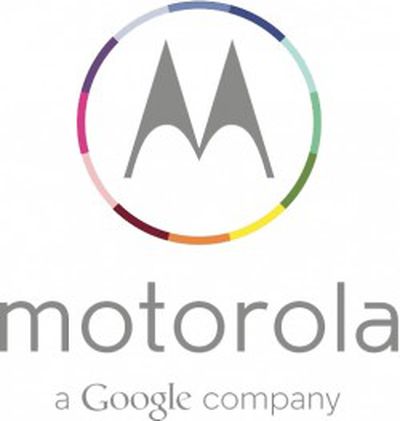 The U.S. Court of Appeals for the Federal Circuit today issued a decision (PDF) upholding a previous ruling by the International Trade Commission (ITC) that Apple did not infringe upon a patent held by Google's Motorola unit. The ITC had ruled in Apple's favor last May, but Google/Motorola appealed that decision to the federal courts.
The U.S. Court of Appeals for the Federal Circuit today issued a decision (PDF) upholding a previous ruling by the International Trade Commission (ITC) that Apple did not infringe upon a patent held by Google's Motorola unit. The ITC had ruled in Apple's favor last May, but Google/Motorola appealed that decision to the federal courts.
The item in question, Claim 12 of Patent Number 6.272,333, addresses methods for communication between wireless devices and fixed data networks. The specific disagreement between Apple and Motorola centered around whether the deletion of applications capable of receiving of push notifications, thus requiring a status update be sent to the fixed network in order to halt sending of notifications, is covered by the patent. The ITC ruled that such action as implemented by Apple is not covered by the patent, and the appeals court has affirmed that decision today.
Put simply, the change in accessibility of deletion is not the change in accessibility that is communicated to the fixed portion of the network. Rather, what is communicated to the fixed portion of the network is a message indicating that push notifications for the application should be cancelled. This message only indicates that push notifications have been cancelled for the application; it does not inform the fixed portion of the network that the application has been deleted.
The court also ruled that Motorola failed to satisfy a requirement that it demonstrate a technical example of the claimed invention with its Droid 2 handset. According to the court, the Droid 2 and Apple's devices do use the same relevant features with respect to registering and unregistering for push notifications, but in line with the previous rationale those devices do not implement the exact invention described in the patent.
Apple has faced off with a number of Android device manufacturers in patent battles over the last several years, most notably Samsung, but for the most part Google and Apple have avoided directly targeting each other. But Google became directly involved in the disputes when it acquired Motorola Mobility and its patents in 2011, thereby inheriting existing lawsuits between Apple and Motorola.






















Top Rated Comments
If Apple found a way to store liquid nitrogen safely in their laptops to help with cooling. They patent the method how this is done, and how it distributes this to the components.
Then another manufacturer suddenly uses liquid nitrogen to aid with cooling, and a few years down the line everybody does it. "It keeps it cooler than fans ever do", the fanboys would spit. "There was no other way to keep it cooler, it's natural progression."
I'd go as far to say that how you achieve something technically is one of the most important parts of a patent. You can't patent multi-touch, but if you patent how your multitouch works, (giving the outcome of the experience being better than the competition), you have the right to defend this.
Apple create a cooling system which uses liquid nitrogen and iridium piping (I'm taking your word for this, as the limit of my knowledge with liquid nitrogen is Heston Blumenthal's cooking ;)). Iridium piping has been used elsewhere, before Apple.
Apple use similar techniques to water cooling in order to cool the components. It's the same setup as water cooling, which has been done elsewhere and has been done before.
Yet Apple spend millions developing and perfecting this, to make absolutely sure it works before releasing it to the public. But because each thing has been done before, Apple shouldn't have a patent on it -- and the competitors are welcome to strip it down and copy Apple's efforts without getting punished.
Yes, it's all been done before. The question is: why hasn't it been done before? Most of Apple's patents are so simple and obvious that people think: why didn't people do it before? Simple fact is that it's so easy and usable, now people think there isn't another way to do things.
It takes more to innovate simplicity, in my opinion. I'm not saying people should patent left right and centre. I'm just saying that simplicity takes a lot of work, and you should be allowed to patent a 'Eureka!' moment.
WE WON A BATTLE! YEAH! Take that you copy-infringing pieces of . . . .
Wait, what is this case about again?
Oh. That's pretty boring.
A thin laptop is not patentable. I'm sure we know that's ridiculous! However, the method in getting the thinness surely is. The MacBook Air displaces most of its heat through the aluminium casing, rather than just sticking to fans. This allows it to be thinner.
The UltraBook market has really taken off, and a lot of their design is just ripped from the MacBook Air. They take them apart, and think 'how can we do this not as well, but cheaper?'
Apple made the plunge with the MBA. Everybody laughed. Apple stuck to their guns, took the flack, and spent the money. They made it thinner, more powerful, more affordable, with better battery life. Then the rest rip it off.
I'd argue Apple don't do enough suing. Rarely, if ever, have I seen a technology market kick off without Apple having put it into gear.
Is my understanding of this ruling correct?
Moto patent says "if you delete an app, a message going to the server will say 'this app is deleted' and therefore stop sending notifications"
And the way Apple got around this patent is by doing things in a very slightly different way: "if you delete an app, a message going to the server will say 'push notifications are no longer needed' and therefore stop sending notifications"
Essentially the only difference is the message ("app deleted" vs "no more push please"), the outcome of the transaction is the same.
Is that right? If so, its whack on both angles. The initial patent is whack, and the way Apple got around it is kinda whack too.